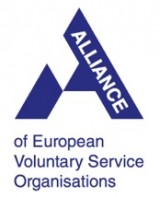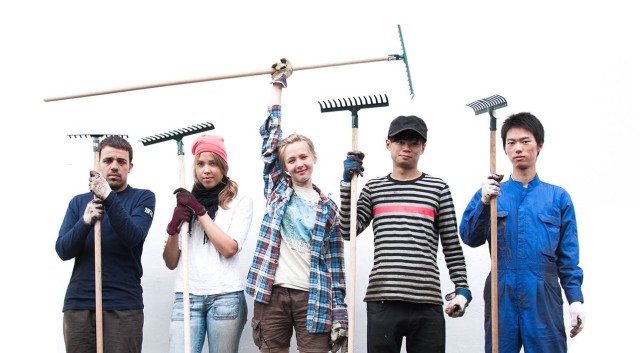About us

The Alliance of European Voluntary Service Organisations is an International Non-Governmental Youth Organisation that represents national organisations which promote intercultural education, understanding and peace through voluntary service. The Alliance, founded in 1982, is presently made up of 50 full, associate and candidate member organisations. 34 of our members are based in 19 Erasmus + programme countries; 6 in Armenia, Bielorussia, Ukraine and Russia; 3 in UK; 7 in Canada, Japan, India, South Korea, Mexico and Nepal. 43 of our members are based in 24 countries members of Council of Europe.
Each member organisation runs an annual programme of International Voluntary Projects in their own country and exchanges volunteers with each other following the Alliance Quality Charter that stresses on the added value of volunteering, its educational aspect and on following quality standards agreed by members.
Working Groups and Committees apart from promoting Alliance main principles, are also responsible for the implementation of the Plan on Action of the network as well as to develop initiatives and bring their ideas to the GA to be voted. Currently over 90 volunteers, representing member organisations, are members of the network’s Working Groups and Committees with a 1-2 year mandate depending on the position they have in the group. The originality and innovation of the Alliance lies therefore in the fact that it has managed to guarantee its internal democratic function creating a structure that allows the widest participation on behalf of its member organisations.
Participation is a process through which members gain influence and share control over development initiatives and the decisions and resources that affect them. Participation improves the quality, effectiveness and sustainability of projects and strengthen membership.
Since the foundation of the Alliance of European Voluntary Service Organizations in 1982, the network developed from a technical platform of volunteer exchange towards a cooperative network. In the Alliance, Participation is a fundamental principle. Within the Alliance participation means:
- Participating volunteers (volunteers are actors of the project) in workcamps, long term voluntary services and educational activities (Study Visits, Training for Trainers, General Conferences, Evaluation meetings)
- Active participation in the community life: voluntary work as a tool to improve active citizenship and democratic, political participation.
- Active membership within the network: Members voluntarily take responsibilities for relevant tasks, working groups (every year) and can be elected to executive positions (every 2 years).
- Active cooperation with other networks on IVS related issues.
- The Alliance also encourages participation on a political and organizational level by building up or improving the skills of its members.
The way the Alliance considers participation is reflected in the management of the network. Based on democratic structure, Alliance works on its initiatives through an annual plan of action thanks to voluntary participation of staff and board members, active volunteers of the member organisations to 8 different committees and working groups.
From the Alliance Representation Plan
Download the Alliance leaflet

